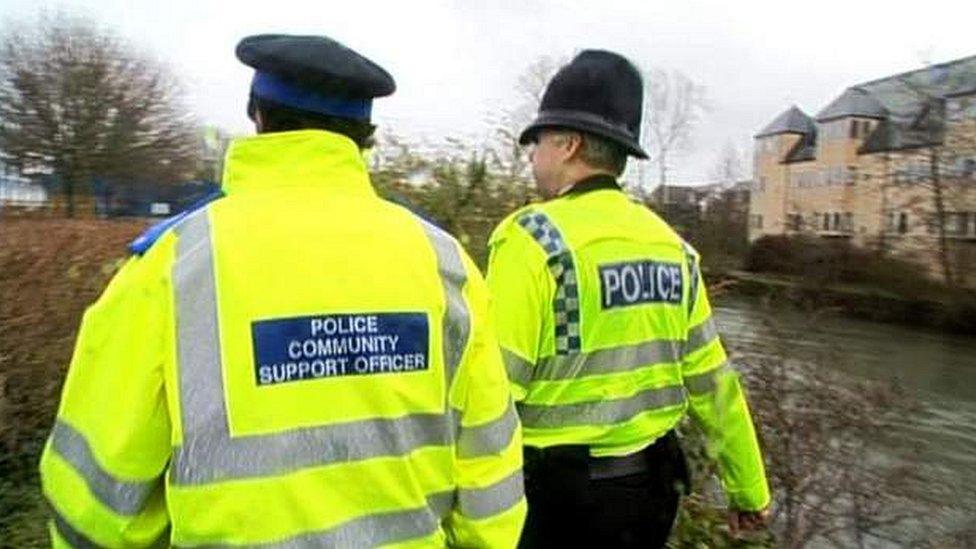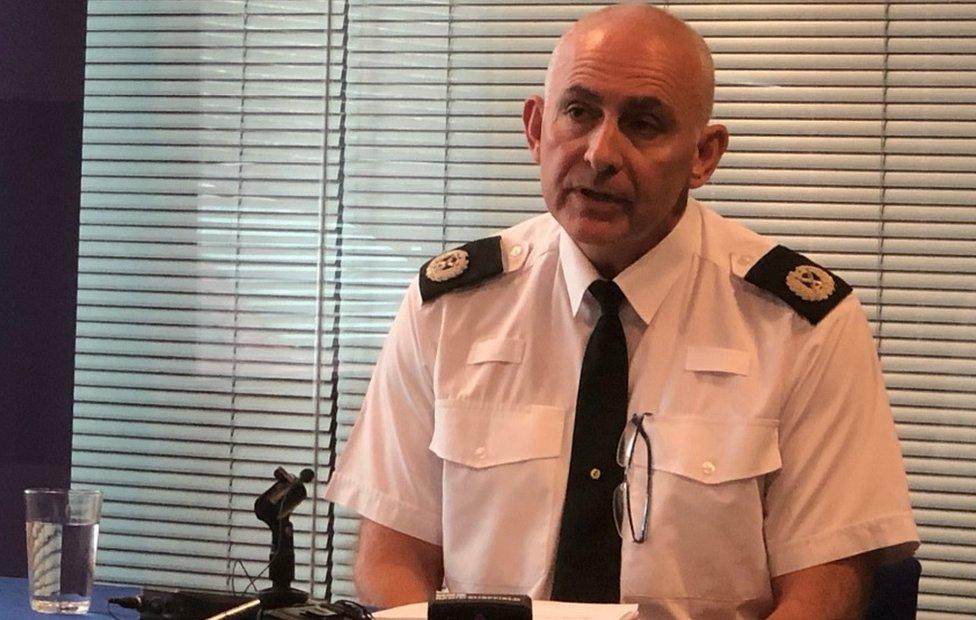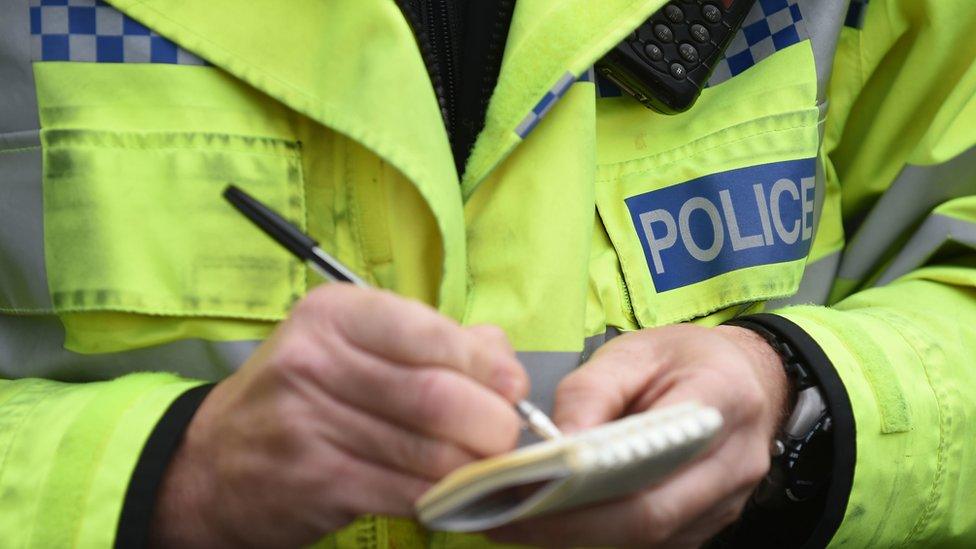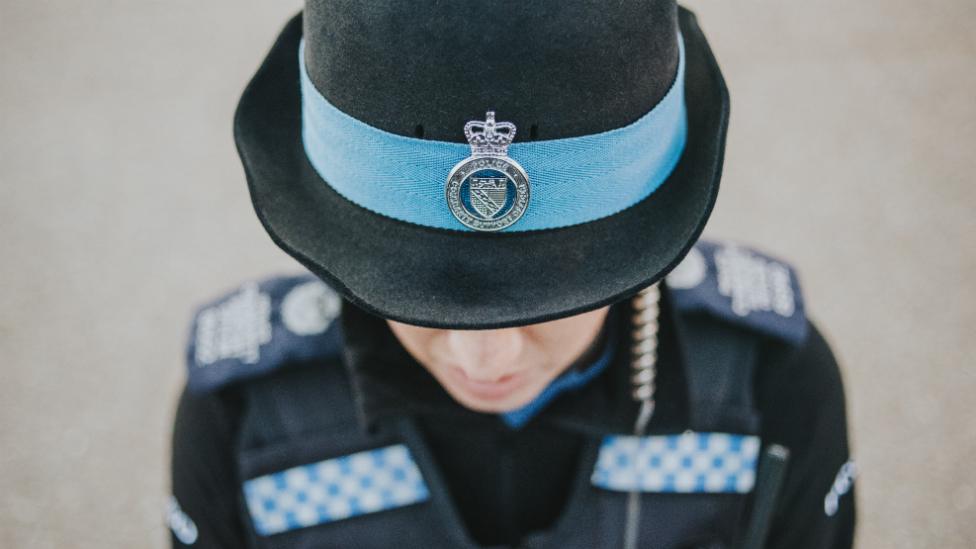South Yorkshire Police to cut half of PCSOs in 'rebalance'
- Published

The number of PCSOs in South Yorkshire will reduce by 101, but 23 of these jobs are currently vacant
South Yorkshire Police is cutting its police community support officer (PCSOs) posts by nearly half.
The force has approximately two PCSOs for every police officer but wants to reverse that ratio in a "rebalance" of its staffing.
It will mean 73 more officers, the force said, and the number of PCSO posts dropping from 217 to 116.
It said the move would avoid redundancies, but the Unite union said it would be "detrimental" to policing.
Assistant Chief Constable David Hartley said the move followed a public consultation which found people wanted neighbourhood teams to be able to deal with burglaries, speeding vehicles, criminal damage and anti-social behaviour - all of which are beyond the powers of PCSOs.
He said the drop in PCSO numbers would be achieved through "natural wastage" and some PCSOs becoming police officers.
"There's absolutely no cuts here, what we're doing is rebalancing in our neighbourhoods without redundancies," he said.
"Some police forces have taken very drastic action in removing the role entirely, that's not our position at all."

Assistant Chief Constable David Hartley said the force had to make "difficult decisions"
The move, which is expected to take two years to implement, will include some shift pattern changes for the remaining PCSOs but Unite is concerned it will leave its PCSO members up to £2,500 worse off a year.
Shane Sweeting, Unite regional officer, said: "PCSOs are particularly needed at key times when anti-social behaviour occurs, such as late evenings and weekends.
"We think today's decision is detrimental to good policing across South Yorkshire - there needs to be a balance between the police with warranted powers of arrest and the important community work that the PCSOs do on a daily basis."

PCSOs
First introduced in England and Wales in 2002
Do not have powers of arrest, cannot interview prisoners or carry out the high-risk tasks of police officers
Can give someone a fixed-penalty notice, for instance for littering, demand the name and address of someone accused of being anti-social, and take alcohol off a person aged under 18
Can also provide support at special events, direct traffic and make house-to-house inquiries

- Published17 July 2018

- Published29 March 2018
